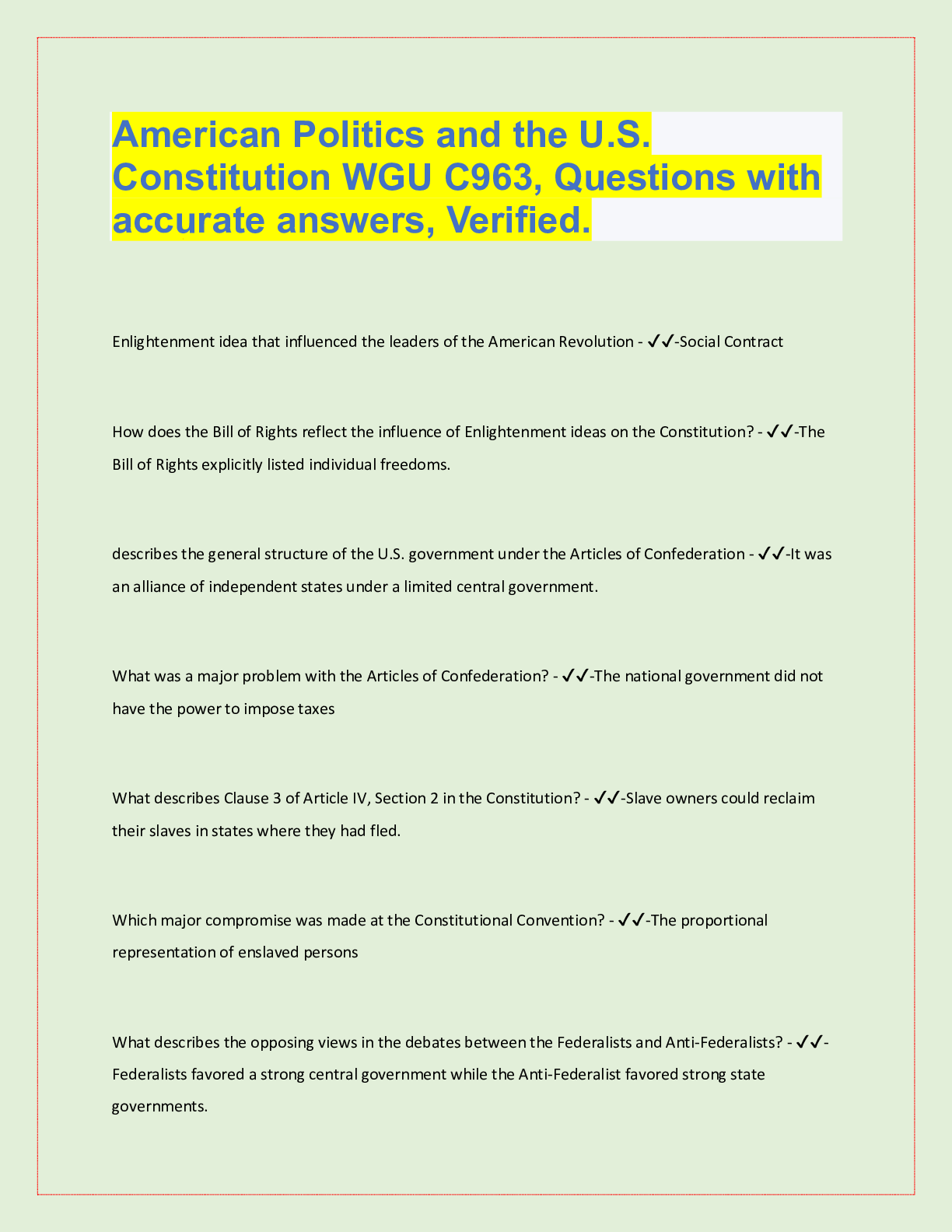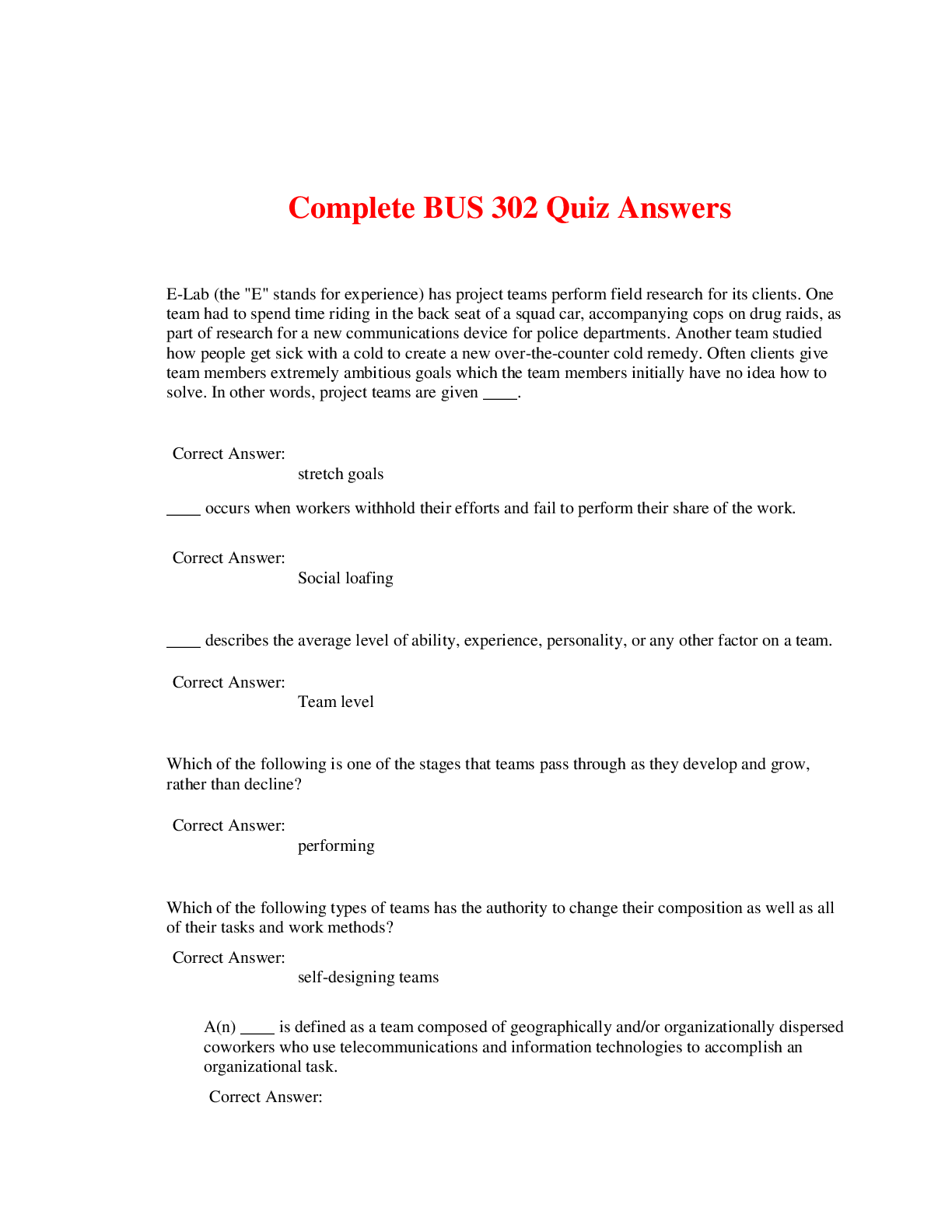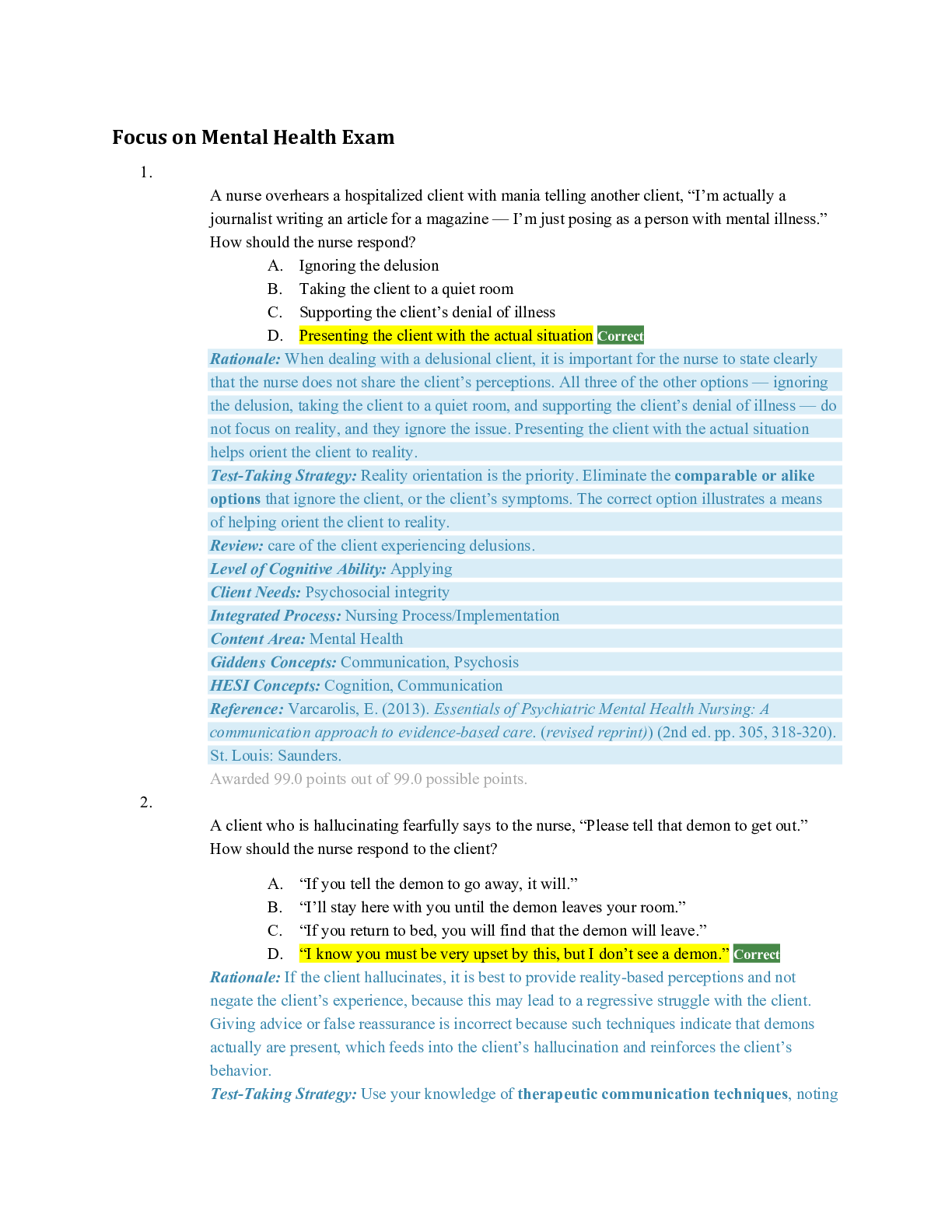
American Politics and the U.S. Constitution WGU C963, Questions with accurate answers, Verified.
$ 6

BUS 302 Quiz Answers Complete Exam.
*NURSING > HESI > NURS 318Focus on Mental Health Exam QUESTIONS AND ANSWERS WITH RATIONALE TIPS TO PASS THE EXAMS GRAD (All)
A nurse overhears a hospitalized client with mania telling another client, “I’m actually a journalist writing an article for a magazine — I’m just posing as a person with mental illness.” Ho ... w should the nurse respond? A client who is hallucinating fearfully says to the nurse, “Please tell that demon to get out.” How should the nurse respond to the client? The mother of a 3-year-old says, “My child hit his teddy bear after being scolded for picking the neighbors’ flowers.” The nurse should explain the child is using which defense mechanism? A client says to the nurse, “Even though my husband and I keep telling them we don’t want to have children, our parents are pressuring us to ‘start a family.’ What should we say to them?” Which response by the nurse is therapeutic? A young adult client says, “I just can’t seem to stop snapping at my parents. I know they work hard to support me, but what do I do when they’re so overbearing?” Which responses by the nurse is therapeutic? A client says, “I have so much trouble caring for my husband’s child from his first marriage. I resent the money we have to pay for child support because we have to deprive my own child of things. How can I stop feeling this way?” Which response by the nurse is therapeutic? A client says to the nurse, “My wife retired last year from a lucrative law practice, and I’m really discouraged. I’ll be working until I die, even though I helped pay for her education.” Which response by the nurse is supportive? A man who is homosexual is brought to the emergency department by the police. The client tells the nurse, “I was beaten up. I guess I just have to expect this kind of treatment for the rest of my life.” Which statement by the nurse is therapeutic? A client whose spouse recently died is experiencing dysfunctional grieving. Which intervention has priority in the plan of care? A nurse develops a plan of care for a client in whom Acquired Immunideficiency Syndrome (AIDS) was recently diagnosed. The client is experiencing difficulty adjusting to the illness. Which interventions are appropriate for this client? Select all that apply. The parents of an 18-month-old arrive at the emergency department with their unconscious child. Physical examination reveals bruises on the child’s upper arms that resemble grip marks. Which nursing intervention is the priority? A nurse in a women’s clinic develops a plan of care for survivors of intimate partner violence. Which tertiary prevention intervention should be included in the plan of care? [Show More]
Last updated: 3 years ago
Preview 1 out of 64 pages

Buy this document to get the full access instantly
Instant Download Access after purchase
Buy NowInstant download
We Accept:

Can't find what you want? Try our AI powered Search
Connected school, study & course
About the document
Uploaded On
Sep 11, 2021
Number of pages
64
Written in
All
This document has been written for:
Uploaded
Sep 11, 2021
Downloads
0
Views
134
Scholarfriends.com Online Platform by Browsegrades Inc. 651N South Broad St, Middletown DE. United States.
We're available through e-mail, Twitter, Facebook, and live chat.
FAQ
Questions? Leave a message!
Copyright © Scholarfriends · High quality services·